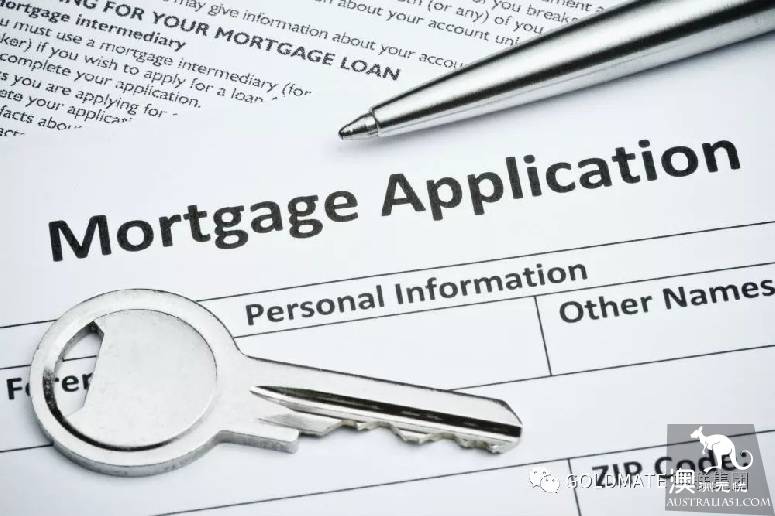In Australia, the process of buying and selling real estate is simple, transparent and fair, due to Australia's strict laws and regulations, an excellent and transparent investment environment.
Following New State Treasury Secretary Dominic Perrottet's announcement on Monday that stamp duty would be reformed next year, Australian Treasury Secretary Josh Frydenberg also asked banks to ease lending restrictions and create new opportunities for investment. There is hope for banks to ease lending restrictions, but as investors we need to be aware of some of the relevant issues related to Australian home loans.
A few questions about Australian home loans need to be known.
Floating rate (Variable Rate) or fixed rate (Fixed Rate)?
In addition to knowing how much your loan interest rate is, you also know whether you choose a floating rate or a fixed rate.
Fixed rate means that interest rate does not change with the change of central bank interest rate or market interest rate for a certain period of time, if choosing lower fixed rate can help lenders lock their ideal interest rate for a period of time. At the same time, you can clearly know the amount of repayment to be paid each month. However, the following points need to be noted here:
Fixed rates are fixed-term, usually up to five years, and when the term is over, a new rate needs to be negotiated with the bank. The fixed interest rate on the contract at the time of signing a contract with the bank is not necessarily the final loan rate, but the actual loan rate is handed over to the house
The interest rate at which the loan was issued on the day of the (Settlement) shall prevail. Prepayment is limited and does not benefit from falling interest rates that reduce the amount of money repaid.
Floating rates have the advantage of being flexible, prepayment without fines, or applying for a hedge account to offset loans and speed up repayment. For those with abundant cash inflows and large savings in the next few years, the downside is that interest rates are uncertain, and once interest rates are raised, they will increase the amount of repayment.

Interest-only (Interest Only) or interest-bearing (Principal Interest)?
From a tax point of view, because Australia has a negative tax deduction
(Negative Gearing), when the income of the investment house is less than the investment cost, the loss can be offset against the income of the current year, and the purpose of reducing the tax can be realized. Therefore, for investment housing, the high tax population is suitable to choose only the way to pay back interest. For self-housing, since interest on non-investment housing loans cannot be deducted from income tax, it is recommended that if easy-on-hand is suitable for the option of debt repayment with principal and interest.
What are the benefits of setting up a hedge account, (Offset Account)?
After investors choose a floating rate, they can choose to set up two accounts, one is a loan account showing the balance of the loan, the other is a hedge account is a repayment account. The money in a hedge account offsets the interest on the loan by offsetting the amount owed in the loan account. There are three main benefits:
- Maximize interest savings: because hedge accounts pay interest on a daily basis, investors can transfer income, such as wages and rents, to hedge accounts, so that interest on loans begins to be offset on the day they are paid.
- Maximum liberalization of funds: the funds in a hedge account can be freely accessed at any time, and if there is any excess funds that can be deposited at any time to offset interest, you will be more free to allocate your funds.
- Potential tax benefits: Australia's tax code states that interest on arrears in an investment house loan account (interest is a loan rate) can be used to deduct taxes. For investment houses, if there is a hedge account, not only can the funds be withdrawn at any time, the portion of the withdrawal will be calculated as interest from the same day to offset the income tax.
Does the number of loans affect interest rates?
Banks usually determine the interest rate on a loan in two ways, the first is the loan line, usually on the basis of the down payment, the higher the loan rate is, the lower the loan rate is. Moreover, the credit rating, the higher the bank credit rating to the lender, the lower the interest rate on the loan. Note that commercial loans can typically reach up to 70% of property valuations and residential loans typically up to 80% of home valuations. An extra one-time purchase of loan insurance is required if a greater proportion of the loan is to be obtained.

What documents do I need to provide?
The material requested by the bank is nothing more than understanding the financial position of the lender in order to guarantee the legitimate rights and interests of the bank. It requires, inter alia, the following four aspects of information:
- Identity certificate: passport, Australian or domestic driver's license, Australian visa category
- Bank deposit slip or bank statement: proof of sufficient amount to make down payment (regular, current)
- Personal assets and liabilities: assets such as real estate cars or other loans (basic information is available)
- Income proof: different types of Australian visa banks also require different overseas income materials. It is recommended to consult with our professional accountants before providing the relevant materials. Here are two areas: the income of the applicant's own job, and simply the (PAYG), Bank, the company's employee, who usually asks for an employer's letter to (Employment Letter) and a nearly three-month pay sheet, (Payslips),. For self-employed persons (Self-Employed), one to two years' tax returns are required. If you have an investment house in Australia, you need to provide rental income related materials.
How long will the loan trial take?
It typically takes four to six weeks to complete the entire loan process, including the time required to evaluate the property and review the contract.
Therefore, it is recommended that if you are ready to buy a house, first let the bank do a "Pre-approve" based on your creditworthiness, and tell you how much money you can lend and how long you can lend it.

What is the cost of the loan?
Applying for a loan will result in a series of fees. At present, major banks generally waive the application fee for housing loans, but for commercial loans, banks often charge some fees, such as loan application fees.
(Establishment Fee), fixed mortgage management fee (Ongoing Fees), wants to purchase real estate evaluation fee (Valuation Fee), property handover fee (Settlement Fee), so when applying for commercial loans to know these costs in advance.
At present mortgage interest rate is too high how to do?
If you feel that the current mortgage interest rate is not ideal, then you can consider refinancing (Refinance), which is to re-loan from other financial institutions to repay your original loan, thereby enjoying a better interest rate.?

